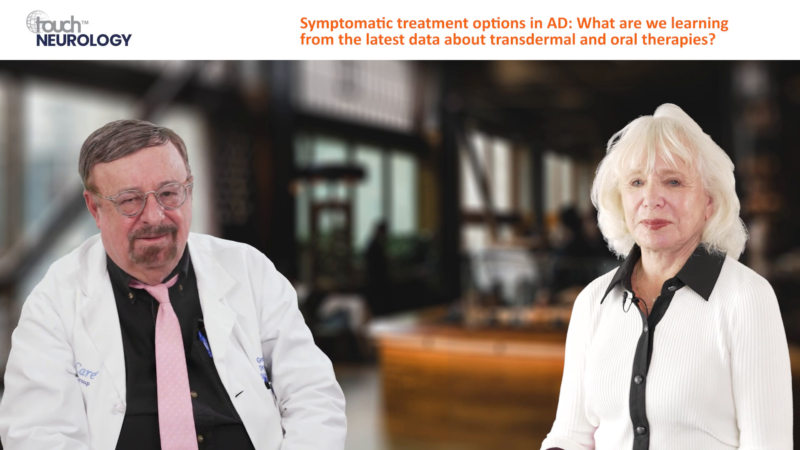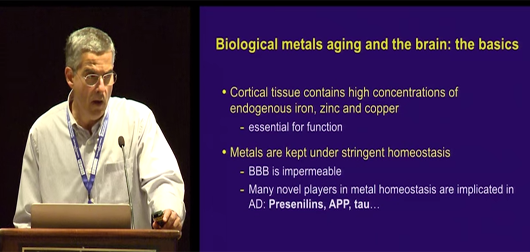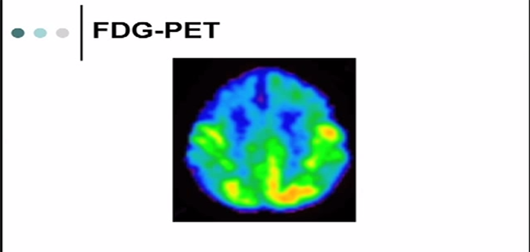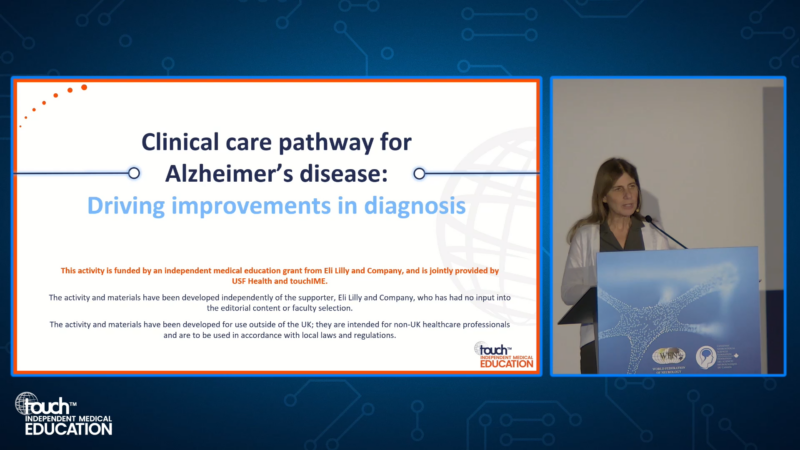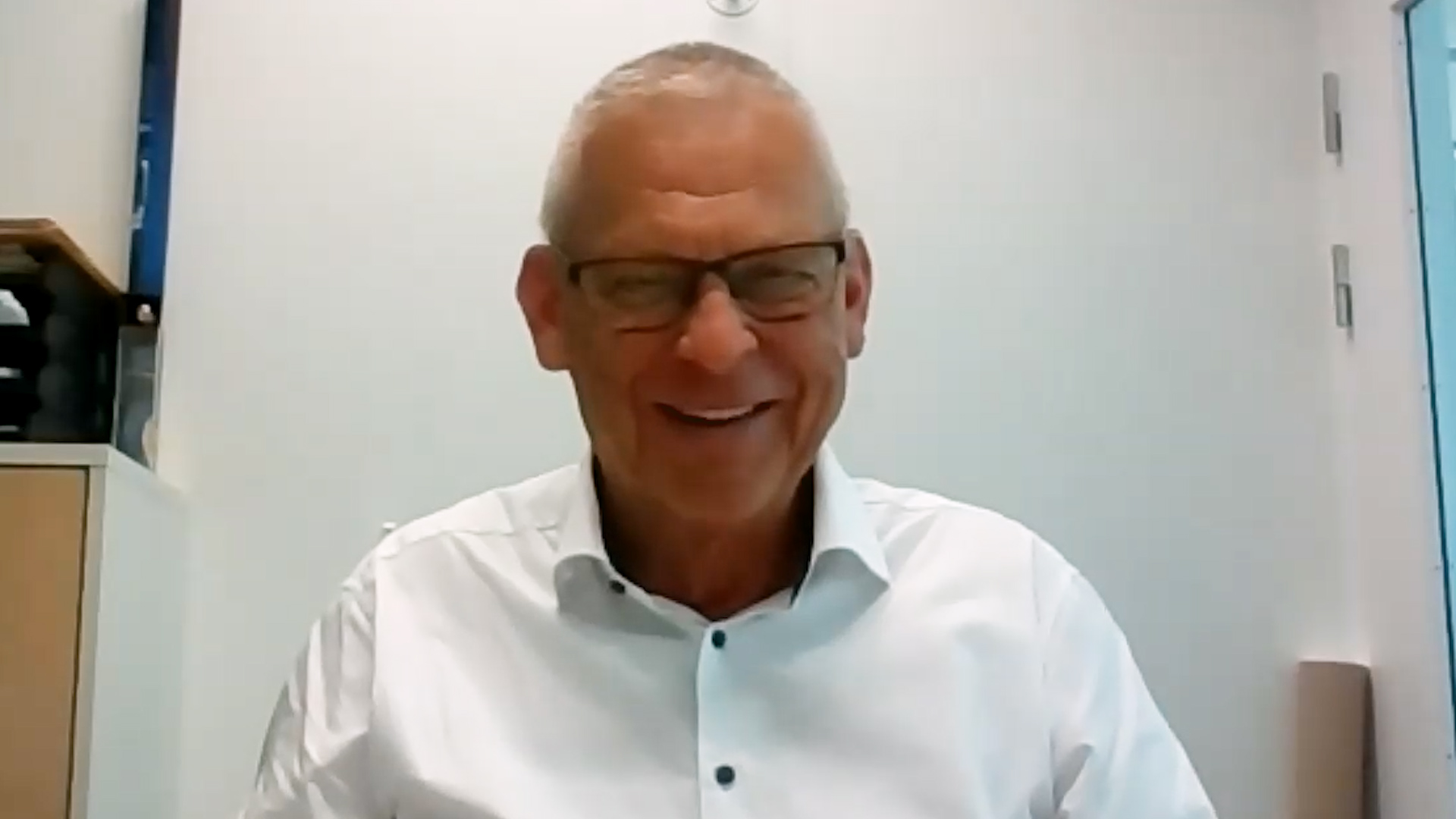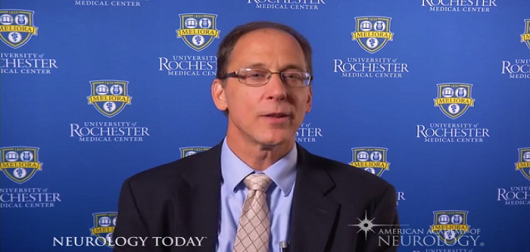touchIN CONVERSATION
 A relaxed discussion between two faculty focussed on real world clinical issues. Useful tips below will show how to navigate the activity. Join the conversation.
Close
A relaxed discussion between two faculty focussed on real world clinical issues. Useful tips below will show how to navigate the activity. Join the conversation.
Close
 A relaxed discussion between two faculty focussed on real world clinical issues. Useful tips below will show how to navigate the activity. Join the conversation.
Close
A relaxed discussion between two faculty focussed on real world clinical issues. Useful tips below will show how to navigate the activity. Join the conversation.
Close
Optimizing outcomes for patients with Alzheimer’s disease: A focus on transdermal therapy
- Downloads including slides are available for this activity in the Toolkit
Learning Objectives
After watching this activity, participants should be better able to:
- Discuss current barriers to optimal outcomes for patients with Alzheimer’s disease, including the importance of early diagnosis and initiating symptomatic therapies at time of diagnosis
- Evaluate clinical efficacy and safety data of transdermal and oral cholinesterase inhibitor delivery, and their implications
- Explain how transdermal options could impact the shared management of Alzheimer’s disease, including day-to-day practical aspects
Overview
In this activity, a world-renowned expert in Alzheimer’s disease is joined in conversation by an Alzheimer’s caregiver advocate to address real-world questions on existing barriers to optimal outcomes and the importance of early diagnosis and initiating symptomatic treatment at the time of diagnosis; the clinical implications of available data for transdermal and oral symptomatic therapies; and how transdermal therapies may support shared-management needs in Alzheimer’s disease.
The discussion is guided by pre-canvassed questions provided by healthcare professionals involved in the management of patients with Alzheimer’s disease.
This activity is jointly provided by USF Health and touchIME. read more
Target Audience
This activity has been designed to meet the educational needs of neurologists, Alzheimer’s disease specialists, geriatricians, specialist nurse practitioners, primary care physicians and pharmacists involved in the management of people living with Alzheimer’s disease.
Disclosures
USF Health adheres to the Standards for Integrity and Independence in Accredited Continuing Education. All individuals in a position to influence content have disclosed to USF Health any financial relationship with an ineligible organization. USF Health has reviewed and mitigated all relevant financial relationships related to the content of the activity. The relevant relationships are listed below. All individuals not listed have no relevant financial relationships.
Faculty
Prof. George T Grossberg discloses: Consultancy fees from Acadia, Alkahest, Avanir Pharmaceuticals, Axsome, Biogen, Bioxcel Therapeutics, Genentech, Karuna Therapeutics, Lilly, Lundbeck, Otsuka, Roche and Takeda. Research support from Janssen and Roche. Safety monitoring committees for Anavex, EryDel, Intra-Cellular Therapies, Merck and Newron Pharmaceuticals. Speaker’s bureau fees from Acadia and Biogen.
Ms Susan Miller has no interests/relationships or affiliations to disclose in relation to this activity.
Content reviewer
Angela M Hill, PharmD, CRPh has no financial interests/relationships or affiliations in relation to this activity.
Touch Medical Directors
Kathy Day has no financial interests/relationships or affiliations in relation to this activity.
USF Health Office of Continuing Professional Development and touchIME staff have no financial interests/relationships or affiliations in relation to this activity.
Requirements for Successful Completion
In order to receive credit for this activity, participants must review the content and complete the post-test and evaluation form. Statements of credit are awarded upon successful completion of the post-test and evaluation form.
If you have questions regarding credit please contact cpdsupport@usf.edu.
Accreditations
Physicians
This activity has been planned and implemented in accordance with the accreditation requirements and policies of the Accreditation Council for Continuing Medical Education (ACCME) through a joint providership of USF Health and touchIME. USF Health is accredited by the ACCME to provide continuing medical education for physicians.
USF Health designates this enduring material for a maximum of 1.0 AMA PRA Category 1 CreditTM. Physicians should claim only the credit commensurate with the extent of their participation in the activity.
Advanced Practice Providers
Physician Assistants may claim a maximum of 1.0 Category 1 credits for completing this activity. NCCPA accepts AMA PRA Category 1 CreditTM from organizations accredited by ACCME or a recognized state medical society.
The AANPCP accepts certificates of participation for educational activities approved for AMA PRA Category 1 CreditTM by ACCME-accredited providers. APRNs who participate will receive a certificate of completion commensurate with the extent of their participation.
Pharmacists
USF Health is accredited by the Accreditation Council for Pharmacy Education as a provider of continuing pharmacy education. This knowledge-based program has been approved for 1.0 contact hours (1.0 CEUs). Universal program number is as follows: 0230-0000-22-015-H01-P.
This activity can be viewed on any web browser such as, but not limited to, Google Chrome, Firefox, Safari, Opera, Microsoft Edge and Internet Explorer.
Date of original release: 19 January 2023. Date credits expire: 19 January 2024.
If you have any questions regarding credit please contact cpdsupport@usf.edu.
To obtain contact hours from this activity, please complete this post-activity test.
Claim Credit- Downloads including slides are available for this activity in the Toolkit
You may also be interested in...

REGISTER NOW FOR FREE ACCESS TO
- 1000+ topical and insightful peer-reviewed journal articles
- 100+ hours of bite-sized congress highlights
- 8 major therapy areas packed with the latest scientific advances
- 150+ specialties offering learn-on-the-go medical education
- + Concise email updates and newsletters so you never miss out








